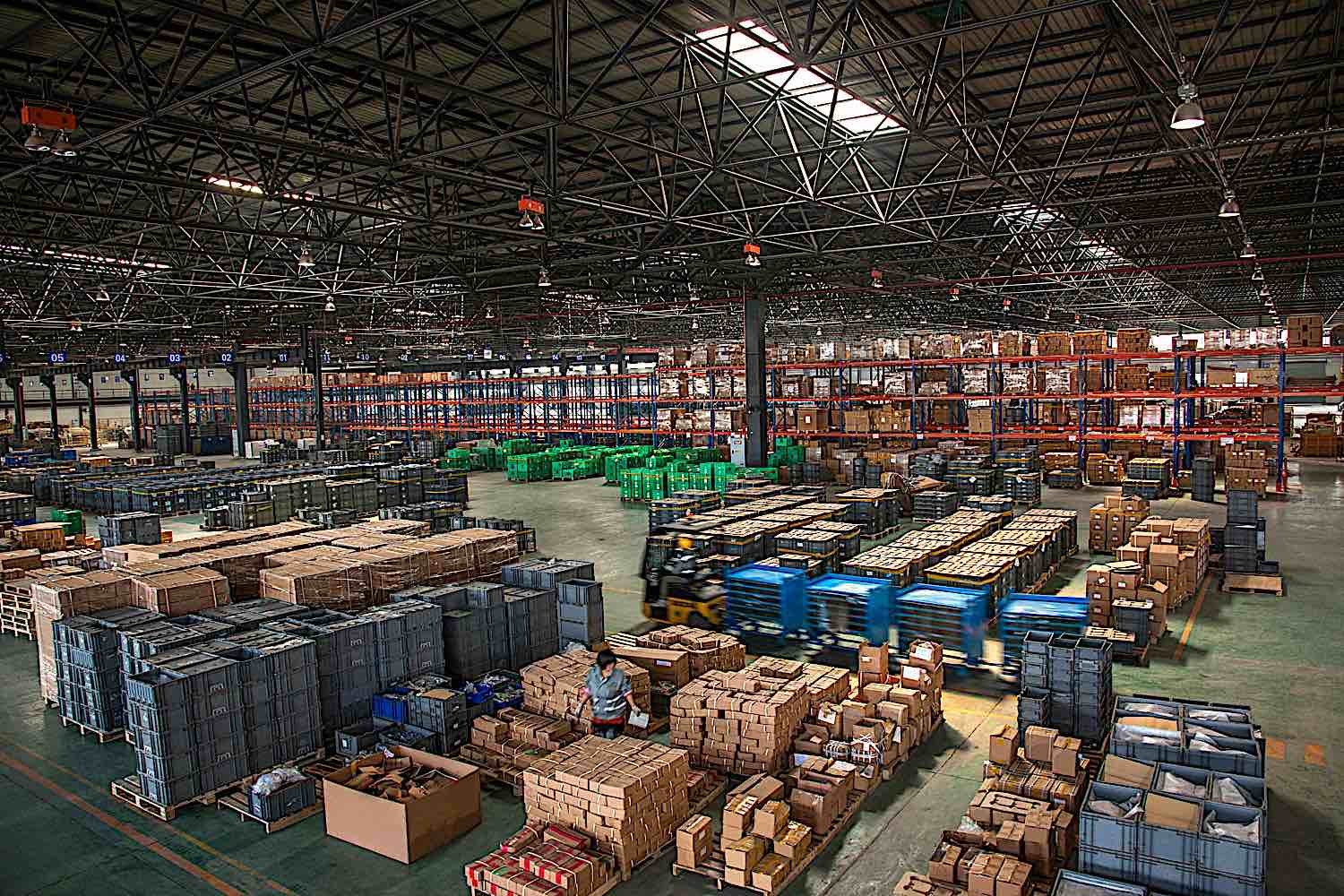The automotive industry has struggled to recover from the pandemic-related supply chain disruption. It has now been some time since the global shortage of microchips, and the sector faces yet another Supply Chain concern. Only this time round, the record shipping costs are contributing to the supply chain concerns.
While shipping costs rarely figure into inflation calculations, large auto companies such as General Motors and Ford Motor Co. are now fretting over the magnitude of the shipping costs.

Figures Behind the Record Shipping Costs in the Automotive Industry
At $80,000 per day, the earnings for freighters are surging to the highest shipping costs ever recorded since the year 2000. The rise in shipping costs stems from the pandemic impact, which led to a 400% increase in freight costs.
Thus, the trend during the pandemic recovery period has successfully predicted the expected high freight rates impacting the automotive industry.
While 2021 had periods of price softening, they have been proven to be a false dawn, with the high shipping rates dominating 2022. RBC analyst Michael Tran indicated last year that “freight prices will not return to pre-pandemic levels for another few years,” which holds true.
The shipping costs exceed some previous analysts’ predictions that the prices would normalize in 2022. As it stands, the United States, United Kingdom, and Europe are the largest importers in the automotive market, whilst China has become the leading exporter in the automotive industry.

Latest Shipping Rates in 2022
As of January 2022, the China -EU shipping lane was experiencing 547% higher rates than the last five years’ average. TIME also reports: “Shipping costs between the United Kingdom and China have hiked to 350%, while costs between Asia and North America are seeing over 50% increase.”
Roll-on-roll-off ships are specialized vessels used to transport heavy machinery and vehicles. Such ships go on a voyage of approximately 60 days, amounting to $740 per vehicle fee. Bloomberg reports that the current rate is at least five times that of the shipping costs before the pandemic.
This recent surge in freight rates has many players in the automotive industry worried that they could not secure ships to transport their cars. Gram Car Carriers ASA boss Georg Whilst states, “individuals are worried that they can’t get hold of tonnage.” He adds, “It’s underinvestment for a long time as the demand is there. The time comes when it pops”

Impact of Record Shipping Costs on Car Manufacturers
AlixPartners organization attributes the temporary shutdowns during the pandemic responsible for the shortage supply of cars. The high shipping costs in 2021 resulted from unstable demand. Whereas in 2022, the steady demand recovery and stagnating vessel fleets spurred record freight rates for ships transporting as many as 6500 vehicles globally.
Both the strong customer demand and the tight supply of cars are causing supply chain challenges today.
The Reaction of Car Manufacturers to the Record Shipping Costs
Gram revealed this week that the company signed a contract to hire out one of its carriers for an average freight rate of $60,000 daily. These high shipping costs are becoming the norm in the automotive industry, with car manufacturers like General Motors planning to strategize a new approach in the latest market conditions.
In June, General Motors Co raised the Hammer EV pickup truck prices to mitigate the impact of the record shipping costs in the automotive industry.
Like General Motors, most car manufacturers are attempting to offset the high supply chain costs by reducing expenses and raising the prices of their vehicles. Some of them are:
- Another high-profile brand, Tesla, recently increased its prices as record shipping expenses became inevitable. Along with other price increases the company has recently made, Tesla increased the prices of its Model Y and Model 3.
- Rivian Automotive Inc is yet another electric car manufacturer forced to raise its prices this year.
Car manufacturers are facing high inflationary costs, and the price hike of vehicles is expected to continue. This is despite pressure from suppliers for the companies to shoulder some burden of the record shipping costs.
Andreas Weller, chief executive of aluminum parts maker Aludyne states, “This year more suppliers have gone into their customers and are demanding higher pricing from car manufacturers.” The record shipping costs are non-negotiable as they affect the car pricing in terms of delivery, processing, and handling fee.
Additional Reasons for the Record Shipping Costs in the Automotive Industry
Deloitte, alongside Manufacturers Alliance, reports that executives globally are identifying the high freight rates as the top operational concern in 2022. Data provided by Deloitte reveals that shipping costs have risen by more than 77% from January 2021 to August 2022.
Key reasons cited for this hike in shipping costs include:
- labor costs
- fuel costs, and
- logistics challenge.
Logistics challenges such as shortage of ship containers, ships, and truck drivers contribute to rising shipping costs.
Managing director at AlixPartners, Dan Hearsch, states, “Virtually any production interruption or shortage in any section of the globe impacts companies globally, and the effects are amplified.” This statement was issued to reference the shortage of shock absorbers and microchips.
The car manufacturers, which also produce shock absorbers and microchips, did not anticipate that the demand would recover quickly. These exact supply chain issues are contributing to the record shipping costs.
The Effects of War on Shipping Costs
Andreas Weller, chief executive of aluminum parts maker Aludyne, reports that another key factor contributing to the record shipping costs is the invasion of Russia into Ukraine. The natural gas and electricity price is now ten times the price before the attack.
Bill Berry, owner of Die-Tech & Engineering notes: “The cost of raw materials has skyrocketed based on the historical perspective.” These critical raw materials expenses contribute to the supply chain disruption impacting the automotive industry. This new economic reality is driving shipping costs upwards.
Hellenic Shipping News notes that while the online demand has been a boon for some businesses in the pandemic period, they are straining the supply chain. Coupled with other issues, this soaring demand for physical goods influences record shipping costs.
Packed and Crowded Ports
Congestion of the ports is another issue analysts are pointing out as the reason for the record shipping costs. Northern Europe, China, and the US have been identified as the vital congestion hotspots in 2022.
Based on Clarkson Research Services data, in March 2022, port congestion related to car carriers was at a record high. The car carrier capacity in the port was at 28.1% on 16th March 2022, compared to 25.0% and 22.7% in 2021 and pre-pandemic levels, respectively.
Hellenic Shipping News reported that while the steady customer demand promised to unwind, it has been disrupted by the Ukraine-Russia conflict. Therefore, the vessel stagnation is expected to carry on to 2023. The record shipping costs are the product of multiple issues in the supply chain, and Clarkson Research Services reports, “the capacity strain will continue for now.”
GoAutoNews Premium reports that a capacity shortage still influences the record shipping costs. Wallenius Wilhelmsen, one of the world’s largest specialty carriers, had to lay up 10 of its vessels during the pandemic due to the drastic decline in demand. Wallenius Wilhelmsen’s spokesman states, “the ten vessels were scheduled to be recycled, but the surge in demand means that they have had to be brought back ahead of schedule.”
Containers are still in short supply as most are located in end-of-line ports. Such containers can only be reintroduced back to the routes if they are returned empty to the busy docks. The slow reintroduction of cargo containers and the steady consumer demand play a role in the record shipping costs in the automotive industry.
ABC News reports that the global shortage of containers is contributing to the increase in delays and congestion at the ports driving the shipping costs up to record figures. It adds that although government efforts have catalyzed soaring demand for physical goods, more time at home, global capacity constraints, and travel restrictions have made congestion at the ports inevitable.
Hellenic Shipping News notes that freight rates are expected to remain at higher levels than pre-pandemic even after the capacity constraints reduction. The news on the record shipping costs has implications for the automotive industry and its strategies in the near future.
Summary
Although the automotive industry’s strain from microchip scarcity is lessening, as indicated by rising sales, there appears to be no relief because the industry is still facing record shipping costs.
Manufacturers have been working hard to meet the high demand for their automotive tools and accessories while retaining the products’ quality amidst the impact of the inflation on shipping rates. And these prices create a global impact especially to regions such as the United States, United Kingdom, and EU, as they face challenges being amongst the most significant auto exporters.
Thus, shipping costs have surged upwards because of the steady consumer demand and stagnating vessel fleet.
Sources
- Reuters – Analysis: Shipping Costs
- TIME- Surge in Shipping Costs
- Bloomberg-Record Shipping Costs
- Automotive News Canada- Record Shipping Costs
- CNN- Automakers’ Problems
- Deloitte- Meeting the Challenge
- Go Auto News- Shipping Costs
- Yahoo News- Auto Suppliers Raising Prices
- Clarkson Research- 2022: Shipping’s Half-Year Report
- Hellenic Shipping News- Global Port Congestion


































